Filter by
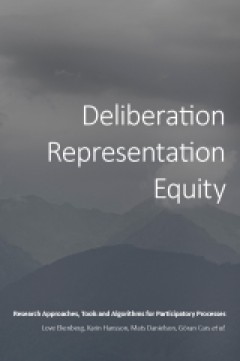
Deliberation, representation, equity: research approaches, tools and algorith…
What can we learn about the development of public interaction in e-democracy from a drama delivered by mobile headphones to an audience standing around a shopping center in a Stockholm suburb? In democratic societies there is widespread acknowledgment of the need to incorporate citizens’ input in decision-making processes in more or less structured ways. But participatory decision making is …
- Edition
- -
- ISBN/ISSN
- 9781783743056
- Collation
- 376 p. : ill. : ind. ; 24 cm
- Series Title
- -
- Call Number
- 323.042 DEL d
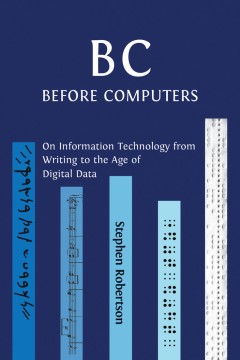
B C, Before Computers : on information technology from writing to the age of …
I found it a delight to read. The author is not trying to write yet another book on the history of computer developments but rather to show that those developments rely on a long history of humans creating solutions to problems that arose as they became more and more sophisticated in their treatment of concepts of information and its manipulation. In many ways it resembles a work of philosophy …
- Edition
- -
- ISBN/ISSN
- 9781800640313
- Collation
- 170p.: colour, ill.
- Series Title
- -
- Call Number
- 004.09 B r
AI art : machine visions and warped dreams
Can computers be creative? Is algorithmic art just a form of Candy Crush? Cutting through the smoke and mirrors surrounding computation, robotics and artificial intelligence, Joanna Zylinska argues that, to understand the promise of AI for the creative fields, we must not confine ourselves solely to the realm of aesthetics. Instead, we need to address the role and position of the human in the c…
- Edition
- -
- ISBN/ISSN
- 9781785420856
- Collation
- 181 p. : color, ill.
- Series Title
- -
- Call Number
- 111.85 ZYL a
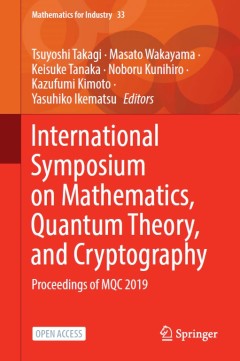
International symposium on mathematics, quantum theory, and cryptography : pr…
This open access book presents selected papers from International Symposium on Mathematics, Quantum Theory, and Cryptography (MQC), which was held on September 25-27, 2019 in Fukuoka, Japan. The international symposium MQC addresses the mathematics and quantum theory underlying secure modeling of the post quantum cryptography including e.g. mathematical study of the light-matter interaction mod…
- Edition
- -
- ISBN/ISSN
- 9789811551918
- Collation
- xii, 274p. : ill.
- Series Title
- -
- Call Number
- 003.54 INT i
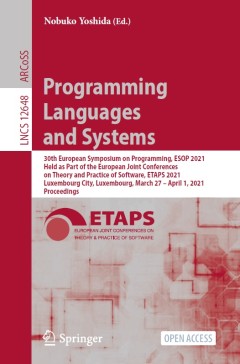
Programming languages and systems : 30th European Symposium on Programming, E…
This open access book constitutes the proceedings of the 30th European Symposium on Programming, ESOP 2021, which was held during March 27 until April 1, 2021, as part of the European Joint Conferences on Theory and Practice of Software, ETAPS 2021. The conference was planned to take place in Luxembourg and changed to an online format due to the COVID-19 pandemic. The 24 papers included in t…
- Edition
- -
- ISBN/ISSN
- 9783030720193
- Collation
- xii, 692p. : ill.
- Series Title
- -
- Call Number
- 005.13 PRO p
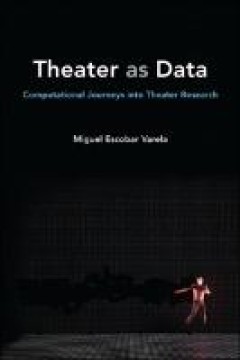
Theater as data : computational journeys into theater research
In Theater as Data, Miguel Escobar Varela explores the use of computational methods and digital data in theater research. He considers the implications of these new approaches, and explains the roles that statistics and visualizations play. Reflecting on recent debates in the humanities, the author suggests that there are two ways of using data, both of which have a place in theater research. D…
- Edition
- -
- ISBN/ISSN
- 9780472128631
- Collation
- VIII, 222 p.
- Series Title
- -
- Call Number
- 792.028 ESC t
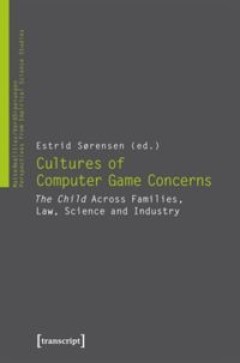
Cultures of computer game concerns : the child across families, law, science …
The same computer games are played by youths all over the world, and worldwide games become matters of concern in relation to children: worries rise about addiction, violence, education, time, and economy. Yet, these concerns vary depending upon where they are situated: in families, legal contexts, industry or science. They also play out differently across countries and cultures. This situated …
- Edition
- -
- ISBN/ISSN
- 9783839439340
- Collation
- III, 355 p.
- Series Title
- VerKörperungen/MatteRealities - Perspektiven empirischer Wissenschaftsforschung, 23
- Call Number
- 794.8 CUL c
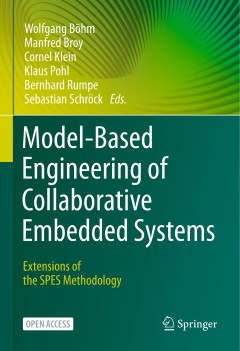
Model-based engineering of collaborative embedded systems : extensions of the…
This Open Access book presents the results of the "Collaborative Embedded Systems" (CrESt) project, aimed at adapting and complementing the methodology underlying modeling techniques developed to cope with the challenges of the dynamic structures of collaborative embedded systems (CESs) based on the SPES development methodology. In order to manage the high complexity of the individual system…
- Edition
- -
- ISBN/ISSN
- 9783030621360
- Collation
- xiii, 404p. : ill.
- Series Title
- -
- Call Number
- 005.1 MOD m
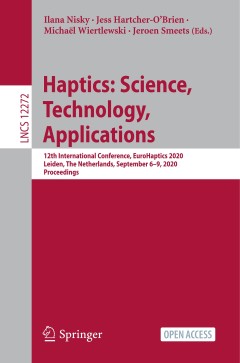
Haptics : science, technology, applications : 12th International Conference, …
This open access book constitutes the proceedings of the 12th International Conference on Human Haptic Sensing and Touch Enabled Computer Applications, EuroHaptics 2020, held in Leiden, The Netherlands, in September 2020. The 60 papers presented in this volume were carefully reviewed and selected from 111 submissions. The were organized in topical sections on haptic science, haptic technolo…
- Edition
- -
- ISBN/ISSN
- 9783030581473
- Collation
- xviii, 557p. : ill.
- Series Title
- -
- Call Number
- 005.437 HAP h
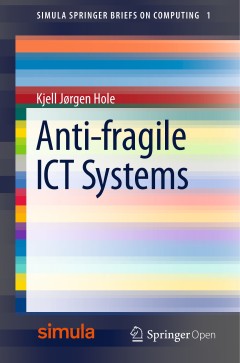
Anti-fragile ICT systems
This book introduces a novel approach to the design and operation of large ICT systems. It views the technical solutions and their stakeholders as complex adaptive systems and argues that traditional risk analyses cannot predict all future incidents with major impacts. To avoid unacceptable events, it is necessary to establish and operate anti-fragile ICT systems that limit the impact of all in…
- Edition
- -
- ISBN/ISSN
- 9783319300702
- Collation
- xviii, 151p. : ill.
- Series Title
- -
- Call Number
- 004.6 HOL a
 Computer Science, Information & General Works
Computer Science, Information & General Works  Philosophy & Psychology
Philosophy & Psychology  Religion
Religion  Social Sciences
Social Sciences  Language
Language  Pure Science
Pure Science  Applied Sciences
Applied Sciences  Art & Recreation
Art & Recreation  Literature
Literature  History & Geography
History & Geography